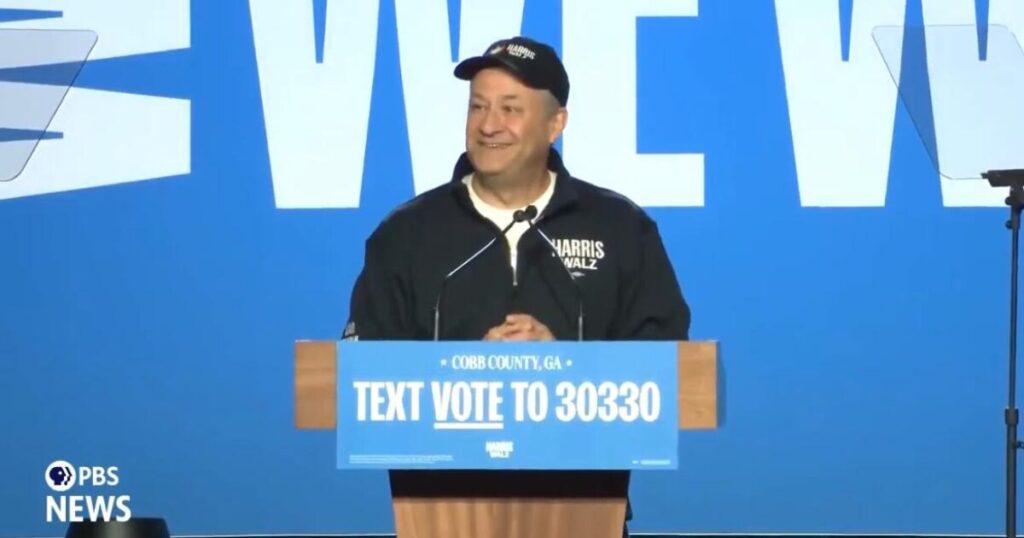During a recent campaign rally in Atlanta, Georgia, Doug Emhoff, the husband of Vice President Kamala Harris, made headlines with his awkward attempts to engage the crowd at what was officially billed as a Harris/Walz event, but which was clearly more about the entertainment than the political message. The presence of Jon Bon Jovi as the featured performer drew much of the audience’s attention, overshadowing Emhoff and his remarks. This blend of music and politics painted a somewhat uncomfortable picture, suggesting that the rally was more of a concert than a serious political gathering.
The atmosphere was light-hearted, but Emhoff’s approach to energizing the crowd raised eyebrows. He shared a moment he described as a “bro hug” with Minnesota Governor Tim Walz, trying to establish a personal connection with the audience. However, this attempt at bonding seemed forced, which only highlighted the peculiar nature of the event. While such moments are often endearing in a more intimate setting, in the context of a political rally, it felt out of place and failed to resonate with the audience as intended.
As he continued his speech, Emhoff expressed admiration for his wife, calling her a “badass,” a sentiment that falls flat given that she had previously withdrawn from the 2020 Democratic Primaries without receiving any votes. This statement prompted reactions of discomfort and amusement on social media, as many found the acknowledgment of her political shortcomings ironic and cringe-worthy. The juxtaposition of his enthusiasm against the backdrop of her failed presidential campaign created an awkward disconnect that did little to bolster her current candidacy or his standing as Second Gentleman.
Further adding to the unusual tone of his address, Emhoff stated, “Kamala did what Kamala always does. She put her head down and went to work.” This remark, while likely intended to praise her work ethic, was interpreted by some as an unintentional admission of her lack of standout accomplishments, raising questions of what work he was specifically referencing. Critics seized on this comment to underline the narrative that Harris had not made significant strides in her political career, leading to further discussion and analysis online.
The overall impression left by Emhoff’s performance at the rally was one of awkwardness, further compounded by the strong presence of Bon Jovi. It highlighted a struggle within the Democratic campaign to create genuine enthusiasm and engagement amidst a backdrop of musical entertainment that may have diluted the political message. As more people came for the music than the political discourse, it showcased a potential disconnect between the candidates’ outreach strategies and their audience’s interests.
In summary, the Atlanta rally featuring Doug Emhoff and Tim Walz serves as a fascinating case study of the blending of music and politics in modern campaigning. Emhoff’s perceived awkwardness and his attempts to rally support for his wife failed to resonate with the audience, overshadowed by the celebrity of Bon Jovi. This event reflects broader challenges that political figures face in connecting authentically with voters amidst distractions, raising questions about effective campaign strategies as the 2024 election approaches.

